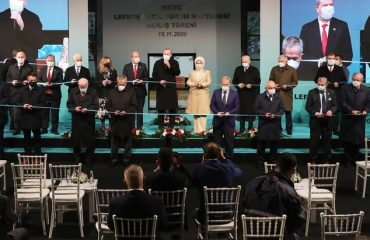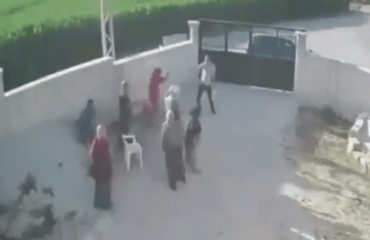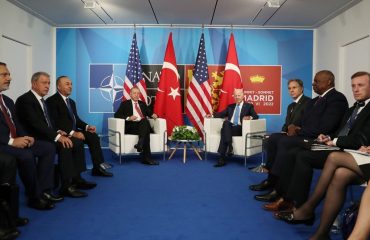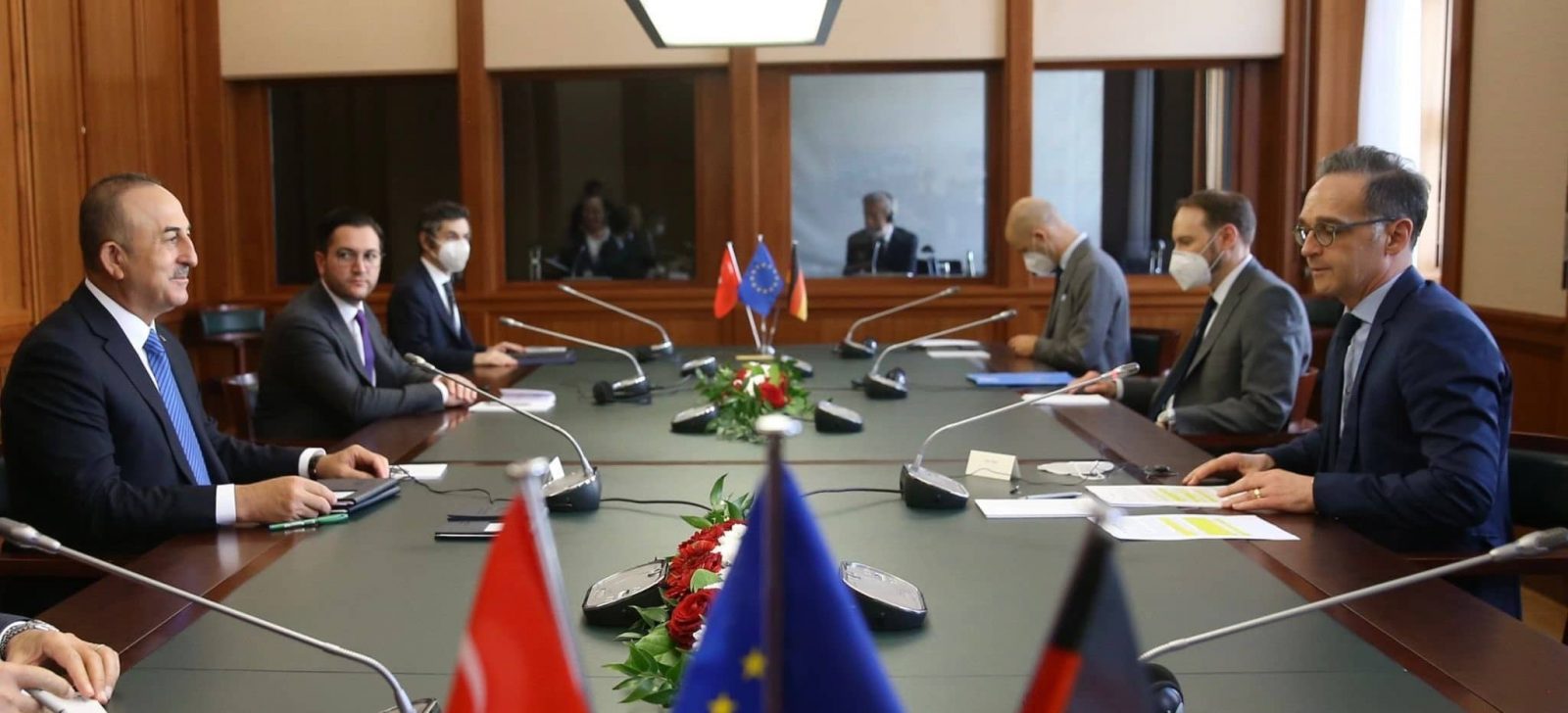
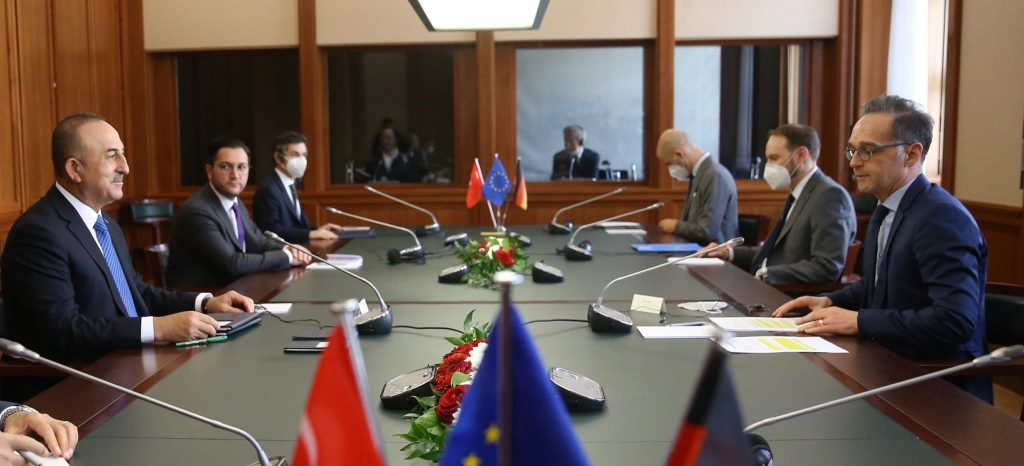
Turkish Foreign Minister Mevlüt Çavuşoğlu made probably the biggest blunder of his political career during a joint press meeting with Heiko Maas, his German counterpart, on May 6 in Berlin, triggering reactions from the opposition.
“Until the end of May, we will vaccinate everyone who could encounter tourists,” he said.
It would cause no problems if he just said “We will vaccinate everyone until the end of the month.”
Then we would just question his optimism at a time when President Tayyip Erdoğan pays efforts to overcome the vaccination shortage with talks Russia as Health Minister Fahrettin Koca does the same with China.
Çavuşoğlu’s remarks contradict his duty, which is first of all protecting and representing the international dignity of Turkish citizens.” “Everyone that tourists could encounter,” he said, meaning the related professions. Everyone from the airport staff to waiters, tourist guides to drivers.
Remarks before the blunder
Nobody had objected to prioritizing healthcare professionals in the vaccination process, even campaigns were launched in this regard. This was the natural thing. Nobody spoke against the vaccination of elderly people, who at high risk. However, as a gigantic education sector remains no vaccinated, with millions of students and teachers being locked in their homes for more than a year, Çavuşoğlu’s remarks netted reactions from all walks of life but naturally not the tourism industry. The opposition harshly criticized the government, accusing it of discrimination between citizens. The minister’s statement is an indicator that he prioritizes the tourism industry in an issue that concerns the health of 84 million citizens.
We have to underscore that the tourism industry is not guilty of this situation. The industry is also struggling to survive, and it is one of the engines of the Turkish economy. Tourism revenues exceeded $10 billion in 2020 despite the pandemic conditions. However, the administration has put the tourism businesses at the center of criticism.
Actually, we should have guessed the government’s approach to the issue when Tourism Minister Mehmet Ersoy, not the health minister, announced on May 3 that the number of new cases would go under 5,000 a day as of May 17, the end of the ongoing lockdown. And now Çavuşoğlu from Turkey’s tourism haven Antalyagets involved in the pandemic issue. Treasury and Finance Minister Lütfi Elvan also said “Tourism revenues are very important in terms of closing the current account deficit” “at private broadcaster CNN Türk. Although President Erdoğan says there is no problem in the economy, the matter is serious according to each member of his team.
Çavuşoğlu is known as a careful politician
This blunder of Çavuşoğlu is actually an expression that reveals the economic distress of the government. We can call it a slip of the tongue. It was really unpleasant to see Çavuşoğlu, who bravely confronted Greek Foreign Minister Nikos Dendias three weeks ago, in a totally different position against his German counterpart that indicates that Turkey is ready to do whatever it takes to attract German visitors. Then one can’t help but ask if Maas asked him in to drop cases against arrested businessman Osman Kavala, politician Selahatin Demirtaş and journalist Can Dündar, who currently lives in Germany.
As you know, German journalist Deniz Yücel of Turkish origin, accused of espionage and terrorism, was released in one day and taken to Germany.
Çavuşoğlu has been known as a careful politician. He is not from political Islamic roots of the ruling Justice and Development Party (AKP). Like Interior Minister Süleyman Soylu, he is from the youth branch of late prime minister and president Süleyman Demirel’s True Path Party (DYP). In fact, besides Erdoğan, he is the sole cabinet member who was among the founders of the AKP. His career in diplomacy, which took him to the foreign ministry seat, includes stages of Parliamentary Foreign Affairs Commission, membership and presidency of the Parliamentary Assembly of the Council of Europe and the Ministry of EU Affairs. He is currently the longest-serving active foreign minister after Russian Foreign Minister Sergey Lavrov.
This blunder was not due to his carelessness or his inexperience in diplomacy. It shows how much political and economic pressure the Erdoğan government feels.
Any BioNTech-Sputnik bargaining?
It is possible to draw the following conclusions from his remarks:
1- The priority of President Tayyip Erdoğan and the AKP government in combating Covid-19 is currently the tourism sector. The government cares for the euros, U.S. dollars and rubles that foreign visitors will bring in. It is not for nothing that this statement was made in Germany, one of the leading tourism markets of Turkey. However, the rate of vaccination in Germany is still below Turkey. In other words, there is a possibility that tourists from Germany might carry the virus to Turkey. Another side of the issue is citizens and dual citizens who will come to Turkey for summer vacation and return to Germany. But no statements have been made to show that the government takes this situation into account.
2- It is understood that the vaccines in stock will mainly be used for tourism sector employees until the end of May.
I wonder if the German BioNTech vaccine will be used for those working in “all-inclusive” hotels that guarantee visitors not to encounter any Turkish citizens who are not vaccinated. Is this the source of the recent BioNTech vaccine shortage? With the same logic, will the Russian visitors be offered a guarantee that staff at the “all-inclusive” tourism facilities they will stay at will get the Sputnik V vaccine? But Sputnik V is not yet an accredited vaccine due to the pressure of Western drug monopolies, just like China’s Sinovac.
3- It is unfortunately declared by the Foreign Minister’s blunder that the priorities of the citizens depend on the amount of foreign currency they can generate. This is a risky step. Has the government taken into account the possibility that Germany might keep putting its efforts to protect its citizens from the disease ahead of providing cheap holidays and not open the doors to Turkey? Is it taken into account what the tourism sector investors and employees, such as the citizens of Antalya, who admired the statement by their countryman Çavuşoğlu, would do if the travel ban continues?
Or is the government simply saying “Let’s save today, God knows what happens tomorrow.” But isn’t it more appropriate to ask how the day will be saved by trying to see what will happen tomorrow?
